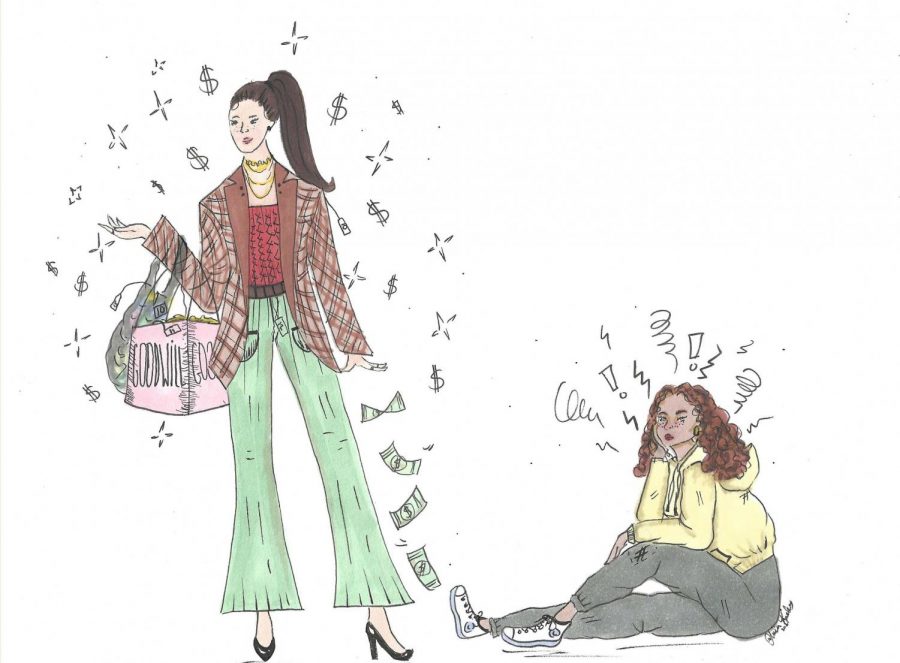The ethical downsides of thrifting
Assistant Opinion Editor Jula Utzschneider writes that while purchasing from secondhand stores can be more sustainable, thrifting can deprive those who cannot afford fast fashion.
March 3, 2021
Thrifting has become increasingly popular, especially among Generation Z. According to ThredUp’s Resale Report, from the largest online thrift store, Gen-Z is “adopting secondhand fashion faster than any other age group.” But is this necessarily a good thing?
Thrifting secondhand clothes carries more ethical dilemmas than it may seem. If wealthier people choose to shop at well-known thrift stores (like Goodwill or Salvation Army), store owners might raise their prices because of higher demand. This is known as thrift store gentrification. While you might not think this is a huge deal, to some people it is. I may think the $8 jacket I found is cute, but that could be exactly what someone needs to keep themselves warm for the winter. Would you purchase that pair of jeans if you knew you were depriving someone of the only clothing they could afford?
Moreover, sites like Poshmark and Depop are emerging as ways for people to sell their clothing. Some people do buy clothes from thrift stores and then change them in some way to make them their own (and sometimes sell them on sites like these), which I think is totally fine. What I don’t agree with is people buying clothes from secondhand stores, and then reselling them (without changing them) for much more money. This is basically making a profit off something that could have really helped someone.
Not all secondhand stores are cheap, however. Some of these stores, labeled more as “vintage,” sell clothes in the moderate to high price range. Wealthier consumers shopping at stores like these won’t harm the low-income buyers, because the demand for inexpensive thrifted clothes has stayed the same.
Obviously, it is more sustainable to purchase clothes from a secondhand store than a fast-fashion retailer like Forever 21 or Shein, which not only hurt the environment, but have awful working conditions. But purchasing something from a cheap thrift store might force someone with less money to shop at stores like these because that’s all they can afford. If wealthier people shopped at stores they could afford to buy from, rather than just looking for a “great deal,” it would save affordable clothes for the people who really need them.
I’m not saying that you can’t shop at an inexpensive thrift store, but if you do, do so in moderation. There are ways to shop more ethically: be mindful of necessities (like children’s and plus-size clothing), and don’t create a small business out of reselling clothing for a much higher price. As our country is becoming more aware of systemic inequality, it’s important to pay attention and be mindful as consumers.











